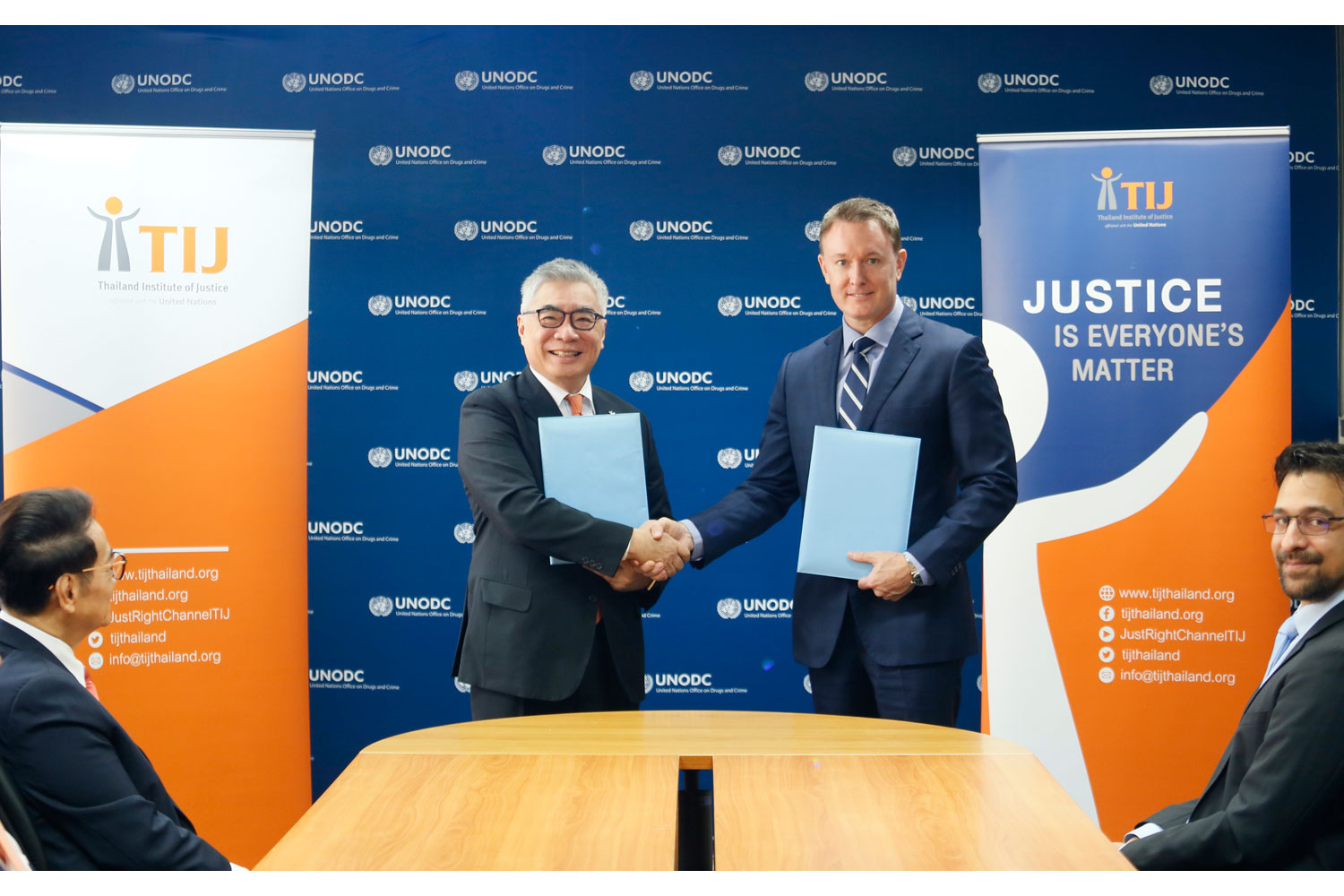
Given the rapid growth in the internet user rate in the dawning of the digital era and the roll out of the “Thailand 4.0” policy to transform current economy by fostering and embracing creativity, research, and development through digitalisation, it is inevitable that threats from the cyber world have the potential to increase.
Thailand ranks first in the ASEAN community for mobile banking users, second for ownership of cryptocurrency, and third in mobile commerce. We have a penetration rate of 133 percent across 55 million active mobile Internet users. Research into cybercrime in Thailand thus far shows it has caused 428.49 million baht in losses. As such, a total of 397.63 million baht in assets has been seized in the process of prosecuting cybercrime cases.
The use of social media platform to commit frauds, circulating malware, selling and buying illicit items and substances, romance scams and online child sexual abuse and exploitation are among the most prominent cybercrimes in Thailand.

To effectively tackle the issue, it cannot be over-stated that investigation and prosecution of cybercrimes requires highly specialised knowledge and tools. It also requires a criminal justice system capable of processing and maintaining the integrity of highly volatile digital evidence. Issues such as the limited resources and manpower with cyber investigative skills outside the capital city, the inadequate levels of integration in the overall structures of national policy, law enforcement, and the criminal justice process need to be addressed.
The Thailand Institute of Justice (TIJ) and the United Nations Office on Drugs and Crime (UNODC) have thereby signed an agreement to establish a platform for stakeholders in Thailand to discuss and reinforce a comprehensive government response to the cybercrime issue.
Prof. Dr. Kittpong Kittayarak, TIJ Executive Director, stated that: “Technological advancement can both bring benefits and cause problems. While new technologies and innovations offer opportunities and possible solutions for crime prevention and criminal justice, cyber space transcends borders and can facilitate crime.”

Jeremy Douglas, UNODC Regional Representative for Southeast Asia and the Pacific added that: “Diplomacy is required with policy advice and capacity building, along with discussion of current and prospective threats and challenges. A strategic partnership with the TIJ will help officials and institutions in Thailand prepare for the challenges they face today and in the future.”
According to the agreement, a series of activities will be implemented to ensure understanding of the situation and collaboration in rectifying it going forward:
- Open discussion through the UNODC National Cybercrime Roundtable Discussion coordination mechanism and focused group discussions;
- Raising awareness among high level government officials and senior managers about the digital opportunities and risks to Thailand’s economy and society, with the opportunity to agree on a multilateral whole-of-government plan to address the risks; and
- Developing and delivering a comprehensive 10-day high impact mentoring programme to create a national pool of specialised trainers or “agents of change” on cybercrime. “This cooperation is the first phase of a multi-year programme to contain the cybercrime threat in Thailand, from consultations to cooperation among involved units, both internally and externally, to ensure that state agencies have potential to manage and fully understand cybercrime issues. We will also generate cybercrime specialists or ‘agents of change’ to continue operating on the issue in a sustainable way going forward,” Prof. Dr. Kittipong concluded.